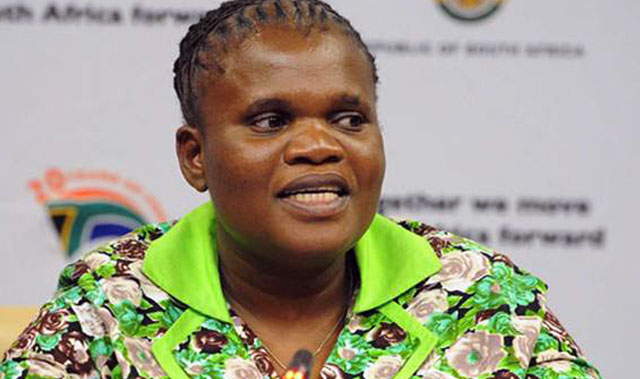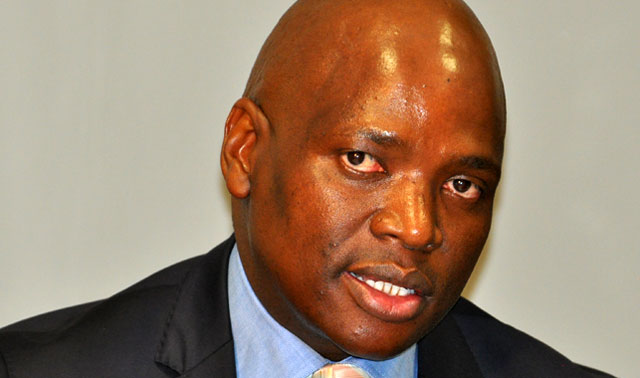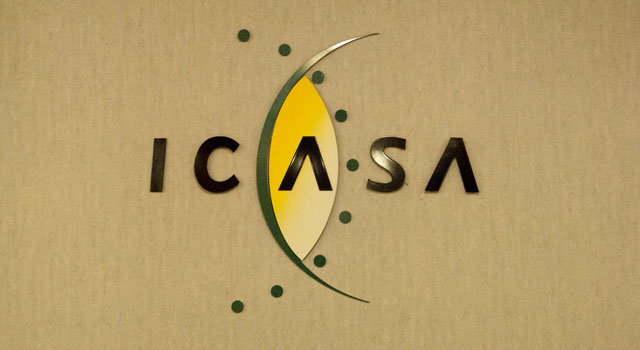
On 20 May, communications minister Faith Muthambi will deliver her second budget vote speech. Those expecting her to roll over and play dead in the light of the controversy that has dogged her tenure are probably in for a surprise. The minister is likely to flex her muscles as she goes about asserting herself in the broadcasting industry.
Muthambi inherited arguably one of government’s best-run departments, the Government Communication and Information System (GCIS).
President Jacob Zuma’s decision after last year’s general election to split the old communications department into the department of telecommunications & postal services and a new department of communications, incorporating GCIS, raised eyebrows. Muthambi’s work was cut out from the start.
With the telecoms, broadcasting and IT industries converging, Zuma’s splitting of the departments immediately created a storm. Speculation that government was creating a “ministry of propaganda” intensified when the SABC and communications regulator Icasa were added to the mix of entities reporting to Muthambi.
The decision was also criticised for being hasty and not properly thought out. It has taken three presidential proclamations to decide who exactly does what.
In fairness, Muthambi handled the flak like a pro. Her budget vote speech in July last year was more guarded than that of her telecoms counterpart, Siyabonga Cwele. For instance, she made no mention of the digital migration project — yet she is now its main driver.
Although many speculate about the reasons for delays to the digital television project — and for the controversial scrapping of encryption in goverment’s final policy — Muthambi’s project leader, Solly Mokoetle, is right in saying that the main aim is to free up spectrum for the roll-out of broadband by telecoms operators.
At this late stage of the game, and with missing the digital migration deadline of 17 June, agreed to with the International Telecommunication Union, a given, it seems Muthambi probably made the right decision to scrap government-mandated encryption, despite howls of protest from some parties.
SABC mess
Muthambi’s track record at the SABC has been far less impressive.
In her budget vote speech in 2014, the minister said stabilising the troubled broadcaster was at the top of her agenda. “We expect that the filling of both the chief operating officer as well as the CEO and chief financial officer positions subsequently will result in clarity of purpose for the SABC,” she said.
In fact, the opposite has happened. The SABC has lurched from crisis to crisis as Muthambi pulled out all the stops to ensure that Hlaudi Motsoeneng remains in place as chief operating officer.
Despite a high court ruling that suspended him from his post recently, he has defiantly remained in place.

The Sunday Times reported recently that the SABC is facing mounting losses.
Motsoeneng also faces allegations around the SABC’s R500m deal with MultiChoice that allegedly resulted in the broadcaster doing an about-turn on the encryption issue. It now supports MultiChoice’s view on the subject. The parties have denied the two are linked.
The SABC has not had a full-time CEO for 15 months and a chairman of the board for five months.
James Aguma was appointed as chief financial officer in January 2015. A number of board members have resigned and two have been ejected by the pro-Motsoeneng board. Let’s not forget that chairman Zandile Tshabalala was forced to resign in the wake of a scandal over the falsification of her qualifications. Deputy chair Mbulaheni Mahuvhe is leading the board in acting capacity.
Icasa controversy
While Muthambi mentioned Icasa only in passing in her budget vote speech last year, she has drawn considerable flak for issuing dismissal letters to four Icasa councillors whose terms of office came to an end in October last year.
Joseph Lebooa, William Currie, William Stucke and Miki Ndhlovu were instructed to vacate their offices at the end of the month in which their terms expired.
This was despite the Icasa Act making it clear that there is an obligatory 45-day extension term, unless a councillor’s successor is already in place. No successors had been appointed and Muthambi’s actions fuelled speculation she was intent on reducing the number of Icasa councillors with the intention of having a more compliant regulator. Nevertheless, the portfolio committee on communications met this week to discuss possible candidates for the vacant Icasa posts.
Muthambi’s budget vote speech was generic and spoke of implementing a “national communication strategy” with “other departments” and “provincial and local government”.

The minister commended GCIS for doing a “sterling job”. However, the past year has seen some strange developments with regard to government’s communication arm. Firstly, GCIS was incorporated into Muthambi’s department. However, allegations that the minister clashed with senior staff as a result of her bull in a china shop demeanour saw the service splitting from the communications department.
Now both the communications department and the GCIS report to the minister of communications as separate departments and function independently of one another. The communications department exercises oversight of the SABC, the Media Development and Diversity Agency, Icasa, Brand South Africa and the Film and Publication Board.
Former acting director-general of GCIS and government spokesman Phumla Williams was relieved of her position and replaced by the junior Donald Liphoko as director-general of the communications department. Williams has now retained her role as cabinet spokesman and reports to the office of minister in the presidency Jeff Radebe. GCIS has yet to appoint its own director-general. Meanwhile, Muthambi has also raised the ire of staff by appointing controversial former GCIS CEO Jimmy Manyi as her special advisor.
Another of Muthambi’s commitments was to ensure that Brand South Africa carries out its mandate. “The positive positioning of the country is crucial for job creation through the strengthening of our competitiveness as a nation,” she said.
But South Africa’s star has been shining less brightly on the international stage in recent years. There are a number of reasons for this, including the rise of other African countries and the recent xenophohic attacks. Brand South Africa seems unable to rise to the challenge of selling the country as a global leader.
It doesn’t help that it is embroiled in a dispute with the minister over allegedly being forced to bankroll the minister’s task team to the tune of R1,1m.
This week, United Democratic Movement leader Bantu Holomisa accused government of abusing Brand South Africa by appointing senior ANC leaders to its ambassadors’ programme.
Holomisa alleges ANC treasurer-general Zweli Mkhize’s overseas trips under the Brand South Africa banner are a guise for raising party funds.
Other “ambassadors” appointed to the programme include former social development minister and ambassador to the UK Zola Skweyiya, former Northern Cape premier Manne Dipico and former North West premier Popo Molefe.
The communications minister’s first name is “Azwihangwisi”, meaning “unforgettable” in Tshivenda. She’s certainly made an impression in the short time in the position. Expect more fireworks from this minister when she delivers her budget vote speech on 20 May. — © 2015 NewsCentral Media
- See also: Cwele fails to meet promises




